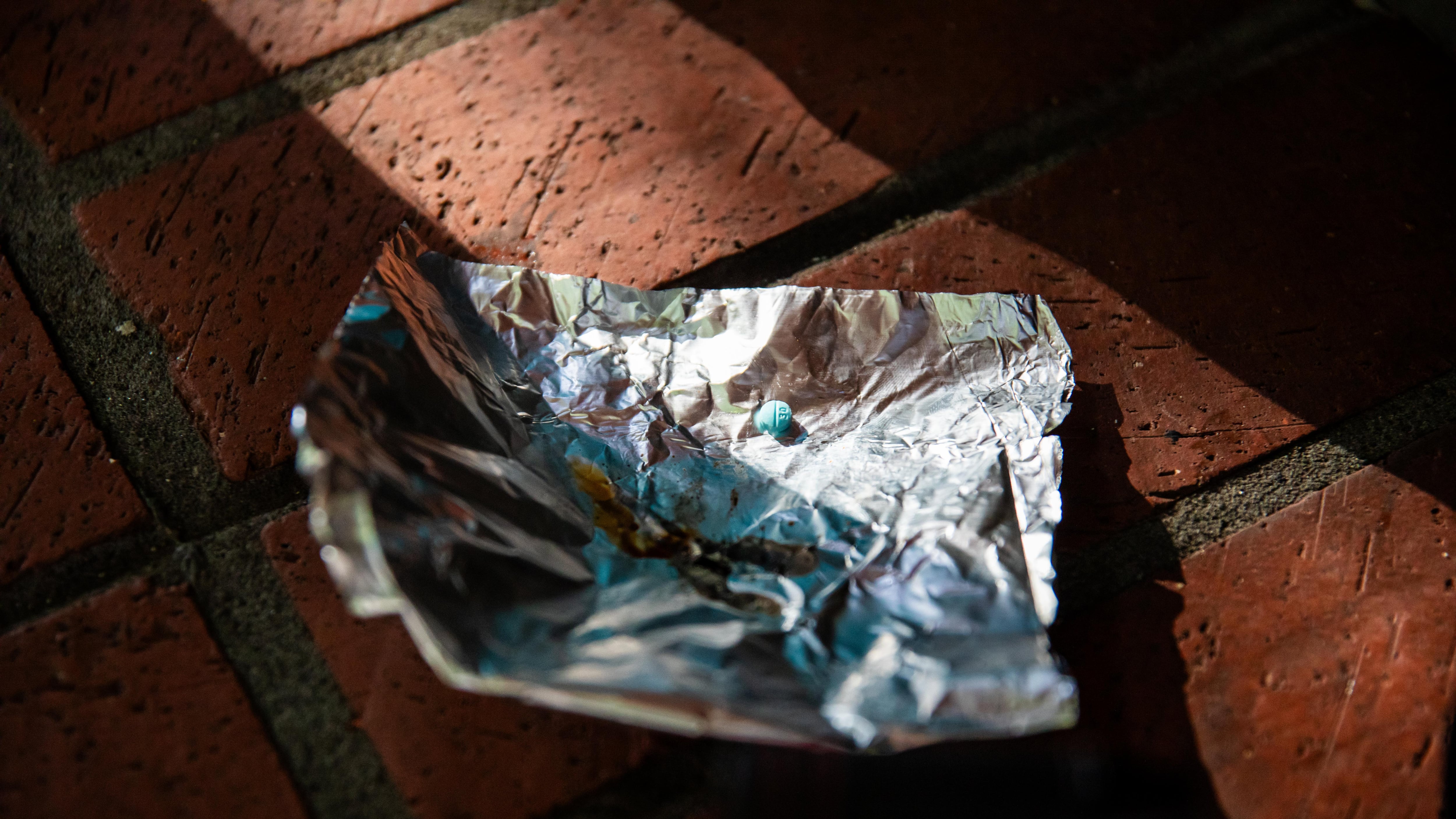The stopwatch for Portland’s January 90-day “fentanyl state of emergency” is running down and, with the problem still far from solved, leaders of the city, county and state will now have to grapple with what to do next.
Today, they offered one long-term solution: the expansion of a popular partnership between opioid treatment providers and the Portland Police Bureau.
The pilot program, which began in December and currently operates out of a cramped room in the county’s new Behavioral Health Resource Center, offers cops a new way to respond to people smoking fentanyl on downtown streets: a roving squad of peer counselors to direct users to treatment.
The prior strategy, having police hand out citations that instruct users to call a treatment hotline to have the $100 fine waived, didn’t work: Almost no one made the call.
The pilot program is now getting nearly $700,000 in funding and a semi-permanent home: a leased space in Mercy Corps’ downtown Portland headquarters. The money will also pay for a program manager and four peer support specialists from the Mental Health & Addiction Association of Oregon, as well as a dedicated vehicle. (When WW went out with a team of peers earlier this year, they were driving their own cars to and from calls.)
The state of Oregon, city of Portland and Multnomah County are splitting the costs. The funding should last a year, assuming the city and county approve the plan.
“We asked Unified Command to leverage enhanced coordination to break the mold and bring new ideas that can outlast the 90-day emergency,” Gov. Tina Kotek said in a press release. “This is a tangible result that has the potential to be a model for other regions.”

